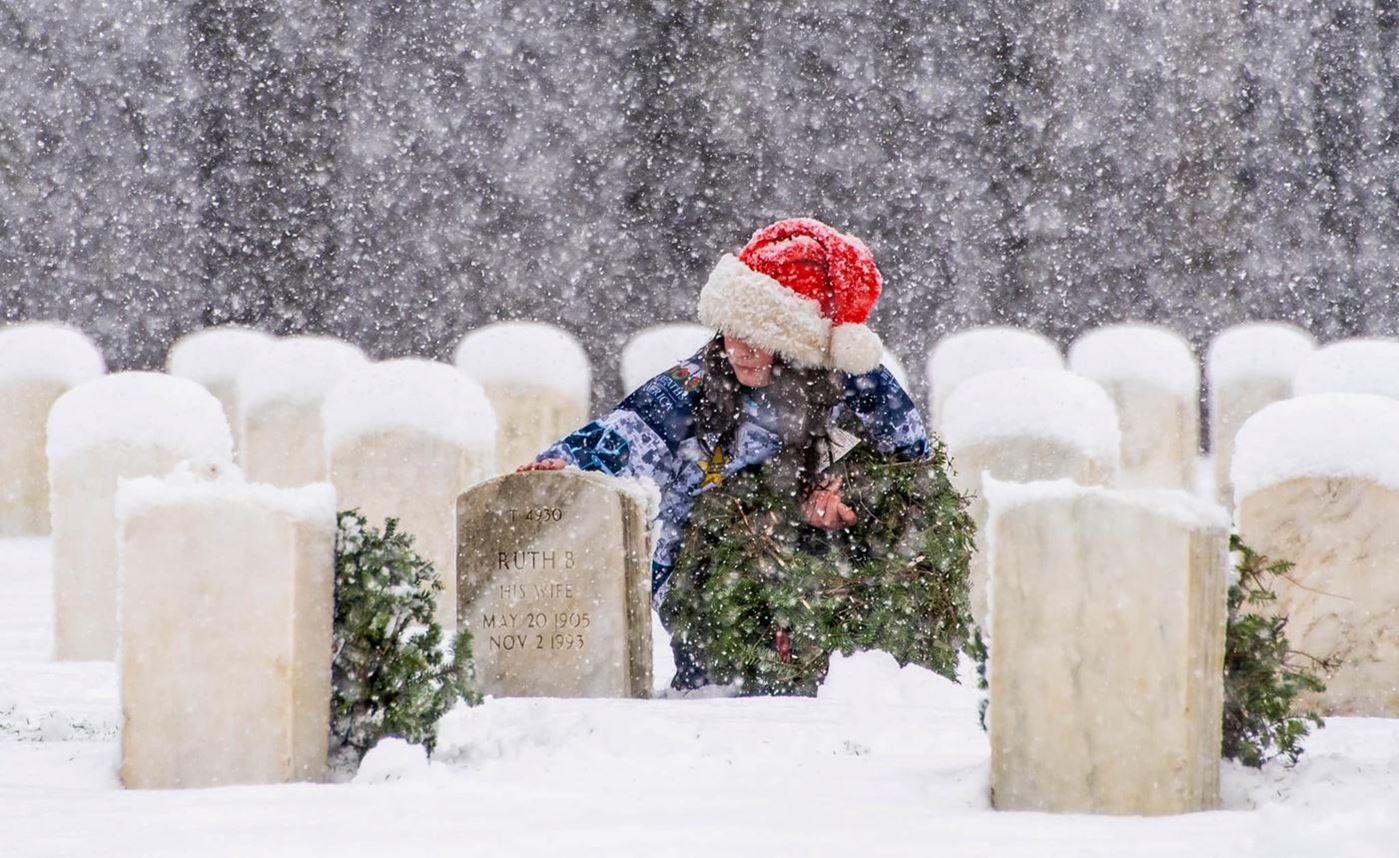Remembering Flying Tiger Line Flight 739
It’s been almost sixty years, but the tears and heartache of surviving family members are visible. There’s been no closure. So many unanswered questions linger about the mission and fate of Flying Tiger Line Flight 739, her crew, and passengers. We do know surviving family and friends of the lost souls aboard that plane want them remembered and honored for their service.
Several months ago, Wreaths Across America introduced the story of the Flying Tiger Line Flight 739, and Executive Director Karen Worcester talked with family members on Mission Matters on Wreaths Across America Radio.
Flying Tiger, Flight 739, went missing in March of 1962. 93 U.S. Army Rangers and their flight crew perished without a trace. Friends and family never recovered from that catastrophic event. The federal government wouldn’t provide any information about the mission these men had been called upon to carry out in Vietnam. Their pain continues as every attempt to get the names of their loved ones on the Vietnam Memorial Wall in Washington, D.C. has been met with the response, “they weren’t in combat operations or a combat zone.”
July 17, 2020, the ground was broken for the newest memorial to be located on the tip land amongst the balsam fir trees adorned with replica dog tags of thousands of fallen heroes. This video shares some of the groundbreaking highlights and emotions of a family that has waited a long time for recognition for their loved one.
This excerpt was shared recently with Wreaths Across America:
“Why me?” – A veteran’s tale of fate and the Flying Tiger
“We were children of the wars, one and two. We grew up listening to the stories from grandfathers, fathers, uncles, and brothers of their service experiences. We were taught that it was our duty and responsibility to serve as they had. We were too proud to take the deferments or physical disability route to avoid service. We trusted our leaders to know what best to do to protect our homeland. We accepted the challenge and gladly served.
On that fateful night in March, we were assembled as ordered, at Travis, on the flight line waiting to board that doomed flight. It was a somber group, as I remember. There was no laughter or idle chit chat as we see today in airports. The Army troops were aware that they were flying into harm’s way, but that was their duty, and they were ready to go.
I was there in my Air Force blues, in a sea of brown Army uniforms. I was excited and apprehensive about my first assignment to Clark Air Force Base on the Philippine islands of Luzon. I was fresh out of basic and tech school and was ready to serve.
We were in line ready to board that sleek and shinning Constellation, a beautiful aircraft commissioned to transport military around the world. I heard my name over the intercom and left the line to report to the ticket desk. I was told I would not be going on that flight but on a new Boeing 707 and assigned to assist a young woman with three small children traveling to Clark to join her husband. I watched the soldiers advance to the loading area and proceed to board the airplane. Once all aboard and doors closed, I watched her taxi out to take off into the night never to return.
I was on duty at Clark about a week later when I was ordered to the First Sergeant’s office. I was told that the flight I had been assigned to went down and was never found. He asked me why I had not informed my parents that I had arrived safely. I told him it never occurred to me to write to them. He told me that the Red Cross had told them that I was on the flight that was lost and that I was assumed dead. He took me to the base HAM radio site, and they patched me into a call home. When my mother answered and heard my voice, I thought she was having a heart attack.
I have always believed that God intervened that day and saved me from death. I also have the question, “why me?” There is the haunting question of who took my place? I still mourn for those souls; may they rest in peace in heaven.
Those soldiers, your loved ones, and the crew of the aircraft deserve recognition of their service as surely as the thousands that gave their lives in Vietnam and Cambodia. They trusted the leaders of our country that their service was appreciated and necessary to keep the world free of communism. Their lives just like those of John, Martin and Robert should not be forgotten but honored as true American Heroes paying the ultimate sacrifice.
It was just nine months later that I was sent to Vietnam in a covert operation to install communication equipment into a new control tower at the village of Bien HOA. How ironic is that?”
Anthony L Wahl Airman 1st Class
United States Air Force

